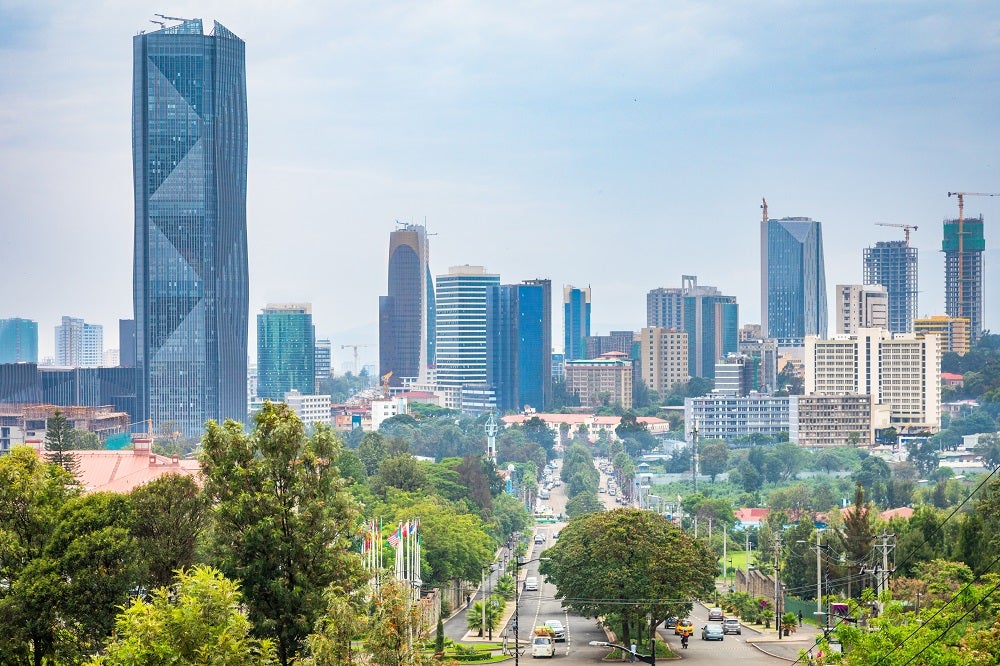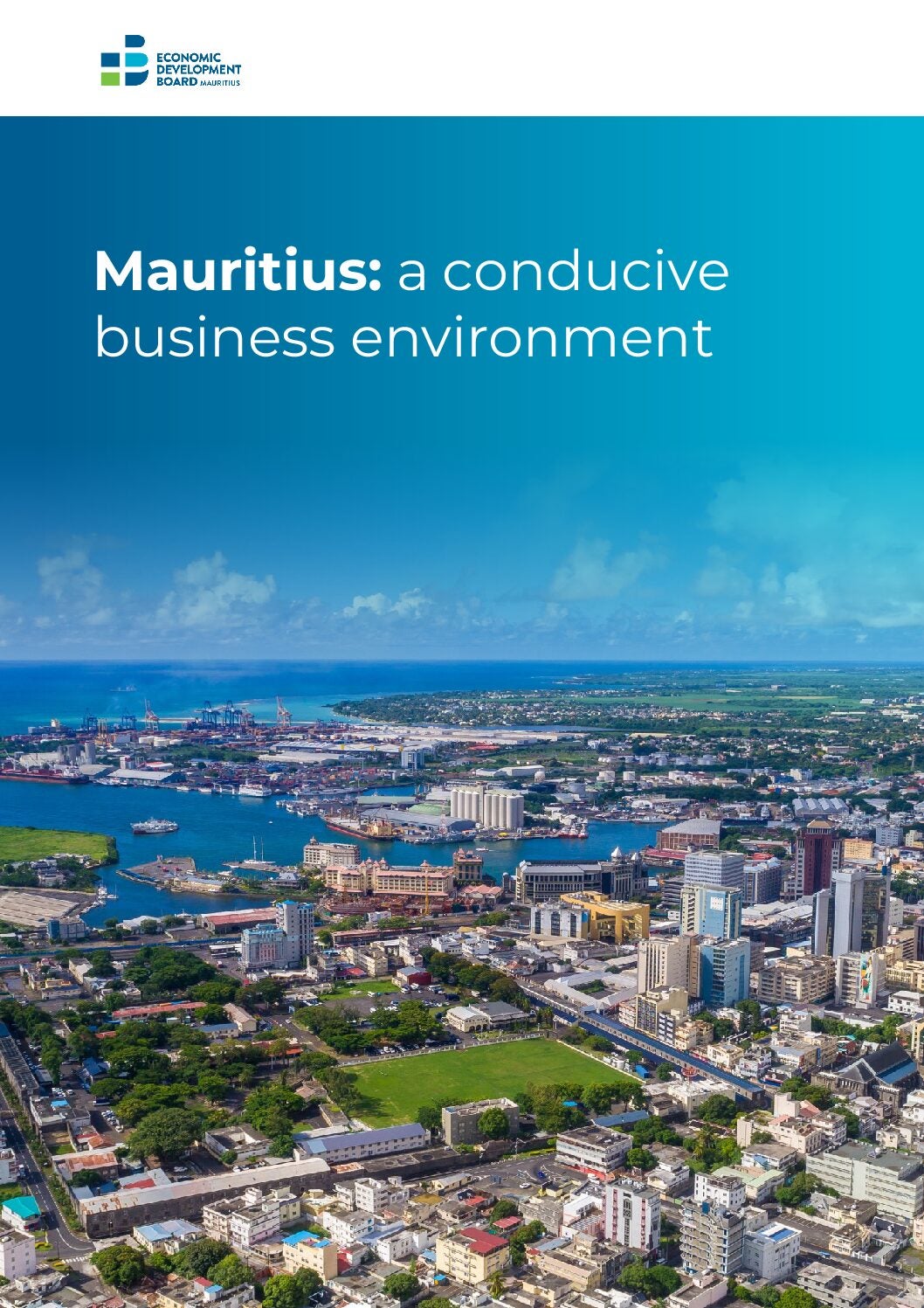
Carrick Wealth is an international financial advisory and wealth management business with five offices in Africa, three more planned to open in 2025, and more than $1 billion under management. The firm, in its 10th year of operating, counts BlackRock, Morgan Stanley, Goldman Sachs and Natixis among its partners, supporting them to access high-potential investments in Africa, a market that requires deep local knowledge and largely operates outside traditional Western risk-reward metrics.
“We understand the African market well; we understand the opportunities and the challenges and see the potential of Mauritius to service high-net worth clientele looking for investments there,” says Nirish Beeharry, regional manager, Carrick Wealth, which structures its funds, trusts and investment schemes from the scenic Indian Ocean island, a growing financial jurisdiction of choice for global investors.
Speaking on a webinar hosted by the Economic Development Board of Mauritius (EDB Mauritius), Beeharry explains that while tax neutrality is certainly one advantage of being domiciled in Mauritius – there is no capital gains, withholding tax or inheritance tax duties and the island has an extensive network of Double Taxation Avoidance Agreements (DTAAs) – he says that the private banking and wealth management initiatives and guidelines driven by robust regulatory and institutional bodies such as EDB Mauritius, the Bank of Mauritius and the Financial Services Commission (FSC), the regulatory body for non-banking financial services – have played a much bigger role in supporting Carrick to flourish.
Moving on up
Since 1990, when Mauritius established itself as an International Financial Centre (IFC), it has been relentless in its pursuit to build on a banking legacy established almost 200 years ago by French traders and create a name for itself in international high-end wealth management, leveraging its strategic location between Europe, Africa and high-growth markets in Asia and historic links with all three continents.
Family Office licenses were introduced in 2016 under the country’s Financial Services Act and subsequently upgraded, which allow for the operations of Single and Multiple Family Offices that can offer a wide and flexible range of trusts, foundations and other structures with Switzerland-style asset protection and confidentiality. The Family Office license holder benefits from a 10-year tax holiday based on certain employment and expenditure criteria and must have assets of at least $5 million for each family member.
In a boost to these services, the Mauritius IFC recently introduced an innovative fund structure called the Variable Capital Company (VCC), which allows multiple sub funds or Special Purpose Vehicles (SPVs) within a single legal entity – particularly attractive for investors in private equity and venture capital.
The Mauritius VCC ringfences each sub-fund or SPV assets and so prevents cross-contamination of risk. This gives reassurance to the end investor as well as increasing operational flexibility and reducing costs. There is also the ability to pay dividends out of the capital of the VCC.
These are not yet available in many other financial jurisdictions and Beeharry highlights these structures as a key influence in the firm in devising its business strategy for and through Mauritius, adding: “The VCC allows an ease of doing business for our clients, but beyond that, when we look at the compelling advantages for companies like ours running Family Offices through Mauritius for ultras, it’s the confidentiality, the data protection and the strength of Mauritius, based on aspects like its rule of law, which enables safe and smart access to internationally robust financial services.”
Mauritius is known as one of Africa’s strongest and safest democracies, with a history of independent institutions and a commitment to the highest standards of operations. Mauritius meets all 40 requirements of the Financial Action Task Force (FATF), is deemed to have no Harmful Tax Practice as per the OECD’s FHTP peer review mechanism and is whitelisted by the EU.

In relation to FACTA, Mauritius signed an Agreement for the Exchange of Information Relating to Taxes with the US and established the legal framework to enable exchange of tax information between the two countries, including the Inter-Governmental Agreement. This guarantees the automatic exchange of information under the Common Reporting Standards (CRS).
Beeharry says these strong regulatory factors, which have underpinned the doubling of the island’s capital markets in three years and attracted an ecosystem of banks, law firms, corporate services and private equity funds, will continue to support Mauritius in its drive to grow its reputation in global wealth management at a time when wealth and the population of high-net worth individuals is on the rise after a difficult few years.
Shaping the future
In further evidence of Mauritius being focused on the future, the FSC has also recently enhanced its regulatory framework to recognise cryptocurrencies, like Ethereum and Bitcoin, as asset classes under the Virtual Asset and Initial Token Offerings Services Act 2021 in recognition of the rising interest in security tokens built on blockchain technology and crypto investments. Warwyck, a private bank and wealth management firm is the first financial services institution on the island to secure virtual asset licenses under these new laws.
As a result, Warwyck is able to offer digital asset custodian, conversion, trading and investment services in Mauritius. Its digital asset exchange-traded fund (ETF), offered under the VCC entity joins leading global investment firms which have launched digital asset retail funds over the past few years, those offering exposure to a basket of cryptocurrencies or companies involved in blockchain technology. It is widely anticipated that a Donald Trump administration will push for regulatory changes in the US that will likely accelerate the institutional and retail adoption of crypto and tokenisation by integrating it into mainstream financial services.
According to Henley & Partners, a high-net worth migration consultancy based in London, the total market value of crypto assets reached $2.3 trillion in 2024, an 89% increase on 2023.
Warwyck CEO Devika Bhuwanee says: “Today, in wealth management we are seeing a growing number of investors seeking exposure to cryptocurrencies and we are seeing more wealth managers encouraging their clients to get exposure to crypto assets. The challenge they face is they typically must open a separate trading account with a crypto exchange to be able to buy, trade and hold these assets – an additional layer of complexity and risk. Here, at Warwyck, in one single trading account our clients get exposure to both traditional securities and to virtual assets. We can also facilitate the conversion of Bitcoin into fiat.
“This is a service we can offer as a result of Mauritius pushing its regulatory framework to evolve in line with market demand.”
EDB Mauritius Introduced the Regulatory Sandbox License (RSL) in 2016. This offers the possibility for an investor to conduct an innovative or disruptive business business activity for which there exists no legal framework, or adequate provisions under existing legislation in Mauritius. Under the RSL regime a temporary framework with guidelines is implemented allowing initial launch until the appropriate legal framework and adequate provisions are established.
“We want to be a leading destination for structuring investments, particularly into the African and Asian markets and we will continue to be proactive in adapting to global wealth trends, regulatory compliance and investment opportunities,” says Vinay Guddye, director, financial services, EDB Mauritius.


